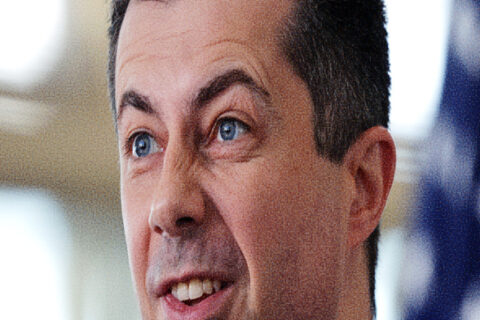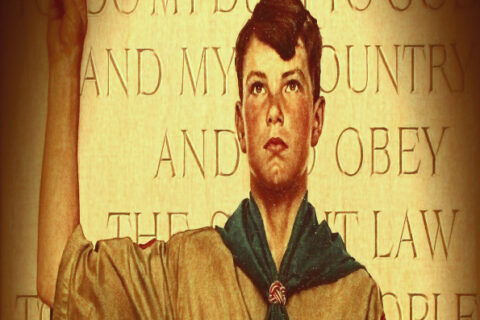It’s conventional in these circles to say that the left-right dichotomy in politics is not only wrong but broken. At its most simple, this model breaks politics down into those who tend to favour the state, and those who tend to favour the market. The problems with this are obvious, not least of which being that these two dimensions cannot possibly have space for morality, culture or metaphysics. You get the numbing duality of party politics, which careerists can exploit to the advantage of themselves, and the oligarchs who back them.
On a more functional level, the standard dichotomy also fails to acknowledge the role of those organisations that are neither public nor private, government or business. In its overarching form, this has been called ‘The Cathedral’ in the context of modern, liberal society. Call it what you will, but the nexus of NGOs, universities, media outlets, campaign groups, and cultural institutions like museums, libraries art galleries and even (yes) churches undeniably exists outside of either the state’s tax and spend matrix or the need to turn a profit.
You might say that the very existence of most of these organizations is a symptom of our decadence, our detachment from consequence. You can have a career as a star graduate or tenured professional without ever needing to worry about what you do being either popular or profitable – living comfortably in a world of subsidies and hot air if you have the qualifications (or connections). On an ideological level, you don’t need me to explain the nefarious influence that this meta-institution exercises over the Western mind, to say nothing of Western policymakers.
So far, so familiar for anyone in this sphere. I’d like to come at this theme from a slightly fresh angle, however, by looking at a little-known book by the British novelist Anthony Burgess. Burgess is best known for his experimental dystopian novella A Clockwork Orange, later adapted into a film by Stanley Kubrick, and as a jobbing intellectual on the British TV circuit. However, his wider canon comprises some intriguing novels – a comedic summary of 20th century history told through the eyes of a homosexual English novelist in Earthly Powers, a series of vignettes about the campaigns of Napoleon in Napoleon Symphony, and a vivid retelling of the Acts of the Apostles set against the backdrop of the decadence of Nero’s court in The Kingdom of the Wicked.
Burgess was raised Catholic and described himself as a sort of anarcho-monarchist. He lived in tax exile with his wife in a caravan driving around France and thrashing out novels and essays. He was a sort of reactionary and certainly not the first thinker to address the issue of progressive hegemony in so-called civil society.
Nevertheless, in his novel 1985, (actually published in 1978, so still a prophesy of sorts) he presented a vision of the near future that is striking for its prescience. The book precedes Houellebecq by a good 40 years, predicting political sclerosis and quasi-official censorship leading Britain to break down into confrontations between the trade unions and a paramilitary organisation, funded by a Middle Eastern Muslim prince who intends to re-establish Britain as an Islamic state. This scenario probably seemed fanciful in the ‘70s and ‘80s, when Britain was still a 90% white country with a reasonably strong sense of its place in the world. It no longer seems that way. Burgess’s prediction of over-mighty civil society organisations causing such a breakdown of order in the West that it must be restored by external actors feels really quite plausible now. That such external actors will have their own agendas goes without saying and may shape the future of at least some European states.
The title is a deliberately unsubtle nod to George Orwell’s 1948 classic of dystopian fiction, the work that has become a piece of modern Western folklore. Burgess opens 1985 with a long and very readable essay about 1984, in which he posits that it is not really a book about Stalinism or surveillance at all, but really a mood piece, aimed at and mirroring the drab austerity of post-war Britain. The book was written in the bombed-out ruins of London just after the Second World War and carries its atmosphere: shortages, power cuts, dysfunction in the public realm: powdered egg, ration books and poverty. The British endured two decades of authoritarianism in order to supposedly ‘beat the Nazis’ with the state taking over vast portions of peoples’ lives, nationalising key sections of the economy and weaponizing the BBC into the overmighty arm of official propaganda that it is today (and which, tellingly, Orwell worked in). Things did not simply return to normal once the troops came home.
People often talk about Britain between roughly 1945 and 1980 as a socialist state, when the government controlled more than half of the economy and levied extraordinarily high taxes, particularly against the aristocracy. It would probably be more accurate, however, to use a word which will be familiar to anyone who has either played Kaiserreich or suffered through a Noam Chomsky book: syndicalism.
Syndicalism is a third position form of socialism: neither statist nor anarchist. In theory, it is about rule through organic worker’s democracy: collectives, unions, associations for mutual aid and so on. In practice, it is basically just rule by trade unions, and this is what Britain had in the three or four decades after the War. With millions of men still employed in manufacturing or industries like coal mining and docking, and a weak and heavily indebted government directly controlling most of these enterprises, conditions were ideal for rule by shop steward, government by strike action.
If the miners wanted a pay rise, they could shut down every power station in the country and force people to cook, read and – in some cases – work by candlelight. If the dockers decided they supported the miners, they could cut off all foreign trade and strangle entire sectors of the economy. If the railway workers decided they didn’t like a new boss, you couldn’t travel anywhere, if the healthcare workers wanted to renegotiate their contracts, the sick would die, and if the gravediggers decided they fancied an expanded holiday allowance, the dead would lie unburied in morgues and hospital wards (as actually happened briefly in the winter of 1978). All of this activity was, of course, more than just spontaneous workers’ protest. It was co-ordinated and organised by overarching institutions like the Trade Union Congress, encouraged by significant sections of the British press, and based on theories formulated and disseminated by leftist academics. The pre-Blair Labour party was also the official organ of organised labour, and thus duty bound to pander to union demands when in government, giving third party action an official seal.
The politics of this have been discussed at great length, but the underlying ideology and impact on a culture was what most concerned Burgess. The protagonist of 1985 is a schoolteacher and a somewhat old-fashioned intellectual called Bev Jones. He is interested in history and the Classics and refuses to teach the garbage new curriculum which has been dumbed down because the unions don’t believe in cultural elitism and wish to promote their ideology in place of the Western canon. As a result of this, he is expelled from his union, which means that he cannot be employed elsewhere unless he agrees to join another one.
He refuses, and so finds himself a sort of latter-day vagabond, existing in the few cracks that exist in this tightly regulated but chaotic society. He ends up teaching prisoners the true facts of English history and classical literature as a sort of outlaw, and eventually falls into an organisation called The Free Britons, a rebel militia organised on quasi-military lines for patriots and opponents of syndicalism but in fact funded by an Arab sheik as a front for the forced Islamisation of Britain.
The world of 1985 is the ugliness of egalitarian ideology made flesh – only, it is enforced not by the state, but by civil society, primarily the trade unions. Gangs of violent immigrant youths roam the streets, but no-one is allowed to challenge them because this would threaten the police’s monopoly on violence and upset their union (and besides, that would also be racist, i.e. inegalitarian). Buildings are not allowed to be beautiful, heritage is not allowed to be preserved, everything must be reformed and renamed in order to be inclusive of the lowest common denominator, unless, like London’s famous Dorchester hotel, it is owned by foreign investors (it is bought up by Arabs and renamed the ‘Al-Dorchester’, not a far cry from the real London West End today). You have to have a job and join a union in order to access state services – it doesn’t have to be a good or purposeful job, it can just be bureaucratic make-work, but nonconformity with the rule of the worker’s movement is simply not permitted. You can voluntarily step out of this all-pervading ideology, but you will find yourself penniless and a pariah if you do.
Anyone who has had to contend with the new dogma of ‘silence is violence’ will recognise this mood. To the modern Left, passive non-participation is no longer acceptable. Everyone has to be a paid-up, card-carrying adherent of the brave new world, or else. Keeping your mouth shut on issues like race and gender is no longer enough, you must always offer positive assent to the present doctrine. This has pushed its way into the workings of the bureaucratic state and most large corporations, with the struggle session, the recommended anti-racism reading list, the mandatory diversity and inclusion training, and so on.
Burgess correctly predicted the outcome of rule by non-state actors – a particularly unpleasant and pervasive form of anarcho-tyranny, in which the state has the power to ruin your life but no clear or formal criteria for doing so. These criteria are established not by politicians and bureaucrats, but by activists and professors. He may have overstated the influence of trade unions, which would be hugely pared back in Britain from the mid-1980s onwards as the economy deindustrialised, but he did foresee the emergence of The Cathedral.
The Left may have replaced blue collar labourers with non-whites and homosexuals in its conception of a rising proletarian revolution, but it has become no less uncompromising in pushing its creeds into every area of modern life. Actual working class jobs may have been exported to the Third World, but you can always recreate a ‘working class’ of your design from scratch if you have functional control over the culture, education, and physical border stations of the West.
1985 ends on an ambiguous, but not exactly cheering note. Thousands of trade unionists, whipped up by agitators, mass in the centre of London, attempting to trigger a general strike. The police and military, who have been sucked into the same syndicalist tar, take their side. The only force that can stop them is the Free Britons, mobilised to protect a giant new mosque which the Arab sheikh who funds them is trying to build next to the British parliament. This militia holds back the crowds, attempting to impose order by force.
Into the midst of this chaos comes a third party. The King, still on his throne after no-one in this dysfunctional state has got around to abolishing it, arrives at the head of a cortege of agents of his household. He addresses the crowds, calling for an end to the madness and asserting his royal prerogative to impose order and push through reforms to make society function again. People listen, but he moves away at the end without any clear resolution. We never see the outcome, whether this is rhetoric or action, how a largely ignored monarch with no real political power can cut the Gordian Knot of bureaucracy, foreign capital and rule by self-righteous NGOs.
We don’t find out if we get an authoritarian correction or not: all we get is more confusion and more shouting.
-By Alfonz

Visit The American Sun at The American Sun





